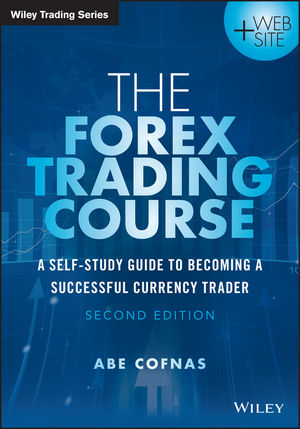Why Joining in a Forex Trading Course Can Boost Your Earnings Rapid
Why Joining in a Forex Trading Course Can Boost Your Earnings Rapid
Blog Article
Comprehending the Fundamentals of Currency Exchange in Today's Global Market
In an increasingly interconnected global economy, realizing the basics of currency exchange is vital for stakeholders across various markets. As main banks apply impact and technological innovations improve money trading, the effects for international commerce are far-reaching.
The Basics of Money Exchange
Money exchange is a basic element of the worldwide economy, helping with worldwide trade and investment. It entails the conversion of one currency into another and is essential for services, governments, and individuals who participate in cross-border deals. The money exchange procedure occurs in the foreign exchange market (Foreign exchange), which is the biggest and most fluid financial market in the world, operating 24-hour a day, five days a week.
At its core, currency exchange is driven by supply and demand characteristics. Currencies are traded in sets, such as EUR/USD or GBP/JPY, and the exchange price between them suggests how much one currency is worth in regards to an additional. This price fluctuates continually due to trade circulations, resources movements, and various other market activities.
Individuals in the Forex market variety from big economic organizations and international companies to private financiers and visitors. Each participant may have different objectives, such as hedging against exchange rate risk, guessing on money motions, or assisting in global acquisitions. Comprehending the basics of money exchange is vital for making educated decisions in the international market, as currency exchange rate can dramatically impact the cost of products and services, investment returns, and financial security.
Variables Influencing Exchange Rates
Higher passion prices use lenders better returns family member to various other countries, drawing in even more foreign funding and creating the money to value. Conversely, inflation rates play an essential role; currencies in nations with lower inflation prices often tend to value as acquiring power rises family member to higher-inflation economic situations.
Financial growth and stability likewise considerably influence exchange rates. A robust economy attracts foreign investment, boosting need for the residential currency, which causes recognition. Additionally, trade balances influence currency worth. A nation with a considerable trade excess typically sees its money appreciate as a result of raised international need for its items and services, while a trade deficit can deteriorate the currency.
Political stability and economic performance are essential also; nations viewed as low-risk destinations for financial investment often tend to see their currencies appreciate. forex trading course. Market conjecture can likewise drive exchange rate variations, as traders anticipate future activities based on existing financial indicators and geopolitical events. These factors jointly add to the vibrant nature of currency exchange rate in the global market
The Role of Central Financial Institutions

Reserve banks also involve in forex interventions to fix too much volatility or imbalances in exchange prices. These treatments might entail purchasing or marketing foreign currencies to preserve a wanted exchange price level. Furthermore, reserve banks hold substantial foreign exchange reserves, which can be released tactically to sustain their currency.

Technology and Currency Trading
While central financial institutions shape read the article the overarching landscape of currency exchange, technical improvements have transformed the auto mechanics of money trading itself. The spreading of electronic systems has equalized access to foreign exchange markets, allowing individual investors to get involved along with institutional investors. Online trading systems, furnished with real-time information and logical tools, promote educated decision-making and have added to raised market liquidity.
Algorithmic trading, powered by advanced software application, has transformed the speed and efficiency of currency trading. Formulas implement professions based upon predefined requirements, lessening human treatment and decreasing the time needed to maximize market movements. This automation boosts precision in profession implementation and aids in the management of complex trading methods. Additionally, the increase of artificial intelligence and artificial intelligence algorithms internet uses predictive analytics, enabling traders to prepare for market fads with better accuracy.
Cryptocurrencies, underpinned by blockchain, have presented a brand-new dimension to money trading, triggering market participants to adjust to an advancing financial ecological community. As modern technology continues to progress, its impact on money trading will likely deepen, shaping future market dynamics - forex trading course.
Effect On Global Profession
In the interconnected landscape of international profession, money exchange plays a critical role in forming economic relationships in between nations. Currency exchange rate influence the expense of exporting products and solutions, affecting competitive positioning in worldwide markets. A strong money can make a country's exports a lot more expensive and much less appealing on the international phase, possibly reducing market share. On the other hand, a weak currency can improve export competition however may increase the cost of importing necessary goods, influencing profession balance.
Money fluctuations can likewise bring about financial uncertainties, making complex long-lasting preparation for multinational companies. Services commonly hedge against these risks via monetary instruments to maintain expenses and earnings. In addition, currency exchange rate affect international direct financial investment (FDI) decisions, as investors seek positive problems explanation to maximize returns, impacting capital moves across boundaries.
Moreover, federal governments aim to maintain stable exchange prices to promote foreseeable trading problems, sometimes intervening in fx markets to accomplish financial goals. Reserve banks might adjust rates of interest or execute financial policies to influence currency toughness, consequently affecting trade dynamics.
Verdict
A comprehensive grip of currency exchange basics is important for navigating the intricacies of the global market. Exchange rates, shaped by rates of interest, inflation, and economic growth, are essential in determining currency valuations. Central financial institutions play a vital function in influencing these rates, while advancements in technology have transformed money trading. Understanding these aspects is essential for effective monetary planning and threat monitoring, as money fluctuations substantially affect worldwide trade and financial investment approaches in an interconnected economic atmosphere.
Report this page